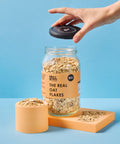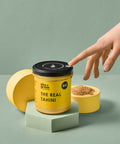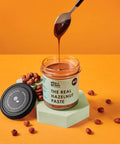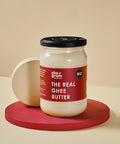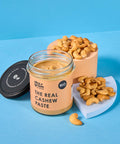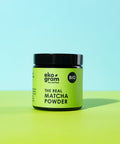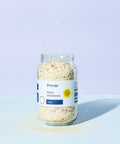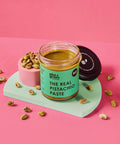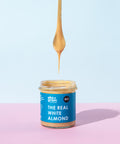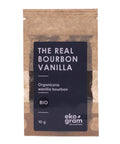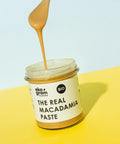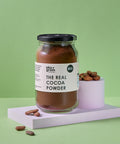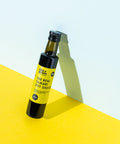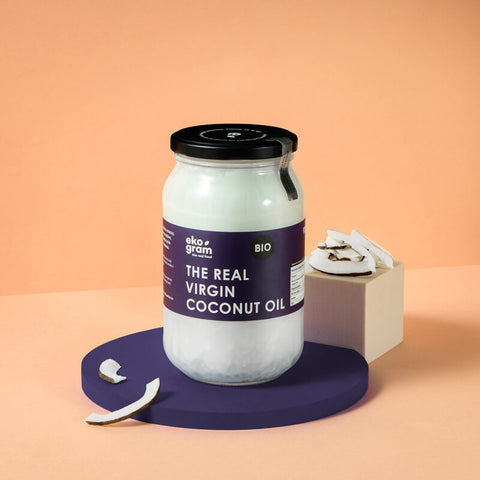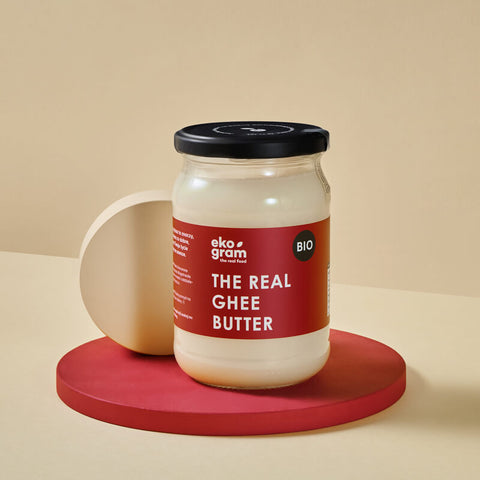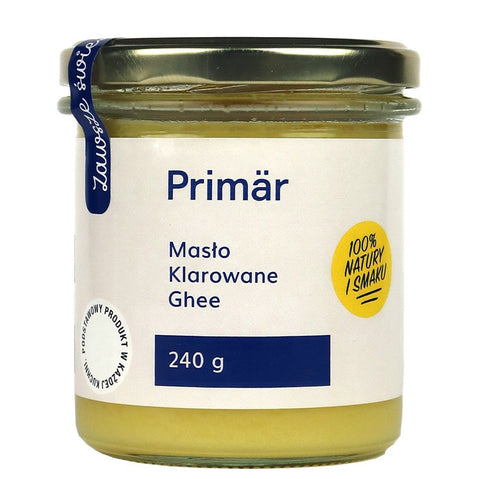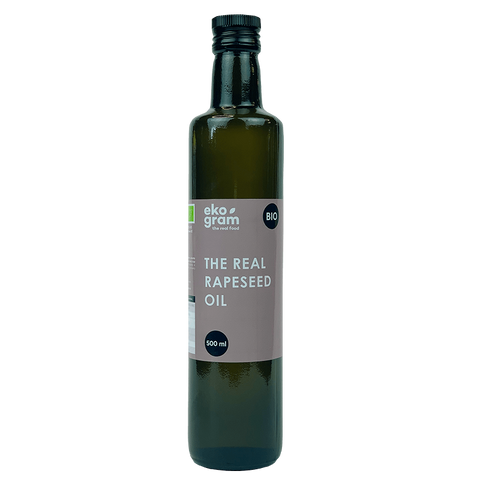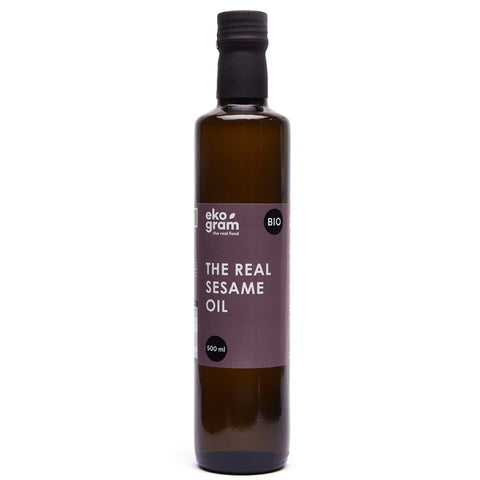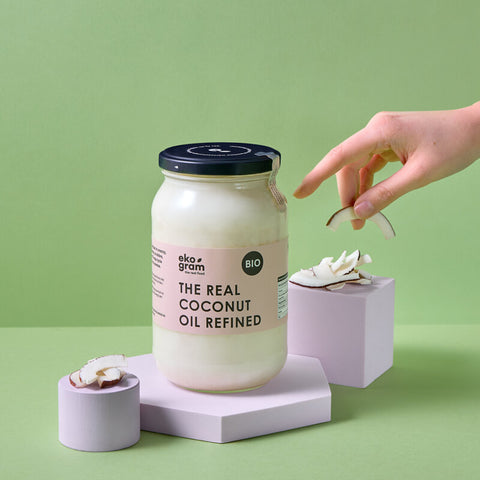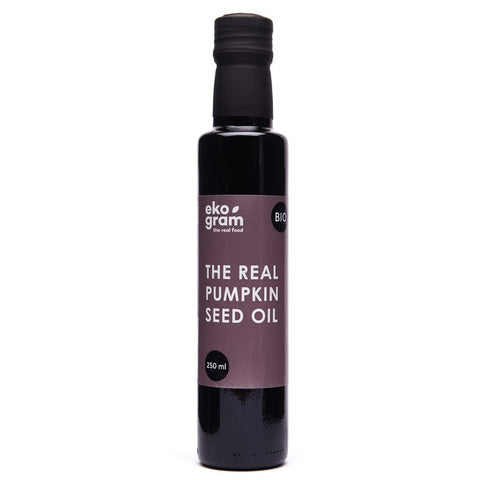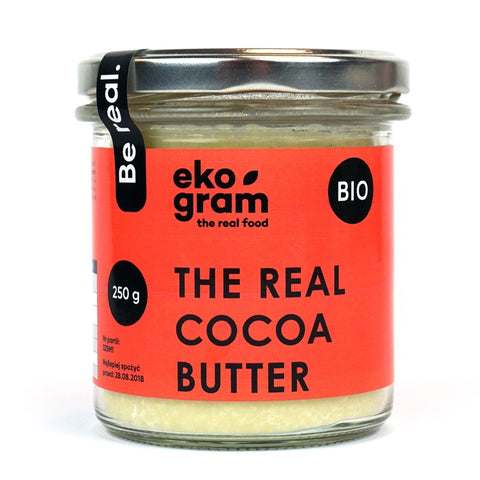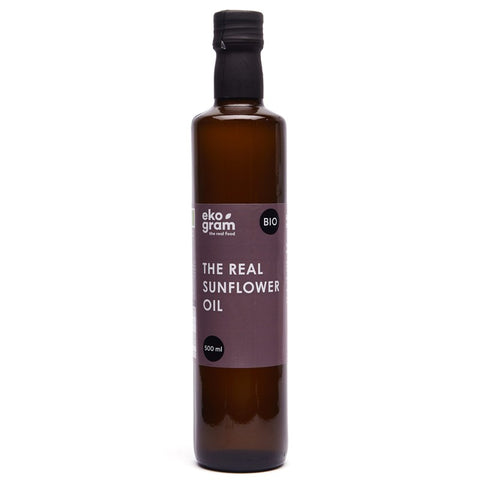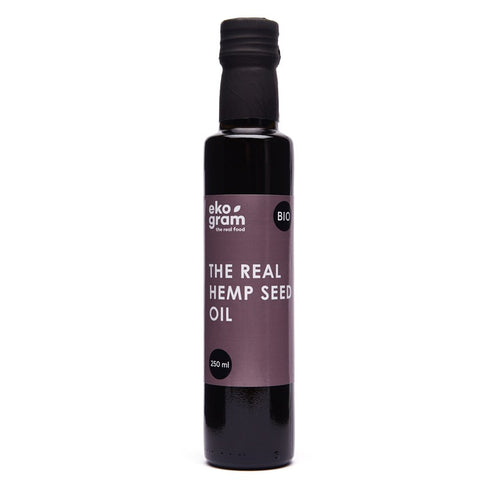15 products
Oils are an important element of a balanced diet. They have a high energy value , are a source of unsaturated fatty acids necessary for the body and enable the absorption of fat-soluble vitamins . But these are not the only advantages of this food group. Oil is also a great partner in the kitchen. It emphasizes the expressiveness of the dish, enlivens and enhances the taste and extracts the entire essence of the dish. In the ekogram.pl store you will find a wide selection of excellent oils that can not be missing in your kitchen!
Vegetable oils - unrefined and cold pressed
The highest quality of products is our priority, which is why Ekogram vegetable oils come only from proven suppliers , for whom, apart from the pressing process, the quality of the raw material, its collection, storage and drying methods are equally important. Extra virgin Ekogram oils are pressed using a low-speed screw press at a temperature not exceeding 40-50 degrees Celsius . Thanks to this, they retain their valuable nutritional values and natural taste, color and aroma . Some cold-pressed oils have a cloudy consistency , which additionally proves the high quality of the product.
BIO quality oils
We can boast that most of our oils are certified organic products. The raw materials from which they were obtained come from organic farms , where only natural fertilizers are used. Choose:
- BIO Unrefined Coconut Oil - Extra Virgin
- BIO Coconut Oil Unscented
- BIO Ghee Clarified Butter
- BIO Olive Oil - Extra Virgin
- BIO Rapeseed Oil - Odorless
- Organic Shea Butter
- BIO Cocoa Butter
- BIO Sesame Oil - Virgin
- BIO Pumpkin Seed Oil - Virgin - Styria
- BIO Milk Thistle Oil - Cold Pressed
- BIO Sunflower Oil - Virgin
- BIO Hemp Oil - Virgin
- BIO Black Seed Oil - Cold Pressed
- MCT C8 Coconut Oil - Ekogram
- Ghee clarified butter - Primär
In our assortment you will also find Primär quality oils, such as MCT Coconut Oil - Primär or Clarified Butter - Ghee - Primär , which we recommend for everyday use. These are universal, high-class products, but they do not have an ecological certificate.
What oil is suitable for frying?
For frying, it is best to use oils that have the lowest content of polyunsaturated fatty acids , i.e. omega 6 and omega 3. These acids are very sensitive to high temperature and oxidize quickly, which is unfavorable for the quality and health properties of the oil.
Frying oil should also be rich in antioxidants , making it much more resistant to high temperatures.
The smoke point , however, is not an important determinant here. For example, olive oil , which has a low smoke point, is excellent for frying. Olive oil is rich in polyphenols and consists mostly of monounsaturated oleic acid, which, unlike polyunsaturated acids, does not undergo negative transformations during processing at high temperatures.
So what oils are best for frying? Olive oil , including the unrefined version, as well as avocado oil, rapeseed oil and coconut oil , which maintains good stability during frying and does not contain cholesterol.
What oils should not be heated?
For baking, stewing, cooking at a maximum temperature of up to 180 degrees Celsius, sesame oil and sunflower oil, as well as unrefined coconut oil, will work well. Never heat and consume only raw hemp oil, milk thistle oil, black cumin oil, pumpkin seed oil.
How to store oil in the kitchen?
Oils should be stored in dark, glass and airtight bottles that limit the access of light and oxygen. Best at room temperature or in the fridge . The higher the content of polyunsaturated fatty acids in the oil, the lower the storage temperature should be. This is especially true of linseed oil , which is extremely sensitive to external factors such as light and high temperature, which can shorten the shelf life of the product and reduce its nutritional value.
What does it mean that the oil is odorless?
Odorless oil is simply oil that has undergone refining processes that deprive the product of its intense flavor and aroma . Our offer includes 2 such oils: BIO Coconut Oil Odorless and BIO Rapeseed Oil - Odorless . We would also like to point out that Ekogram fragrance-free oils are refined using mechanical methods , which means that no chemicals were used in the process, and the refining was carried out in the most natural way. The oil was subjected to hot pressing at high temperature , which allowed to obtain a universal product, odorless and with a neutral aroma.
How to count frying oil?
To properly calculate the calories from oil, it's best to measure it by tablespoons when adding oil to the pan. Knowing the energy value of individual oils in 100 g, you can easily calculate how many calories there are in 1 tablespoon of the product, which usually contains about 10 g of oil. If 100 g of rapeseed oil has 828 g of calories, then 1 tablespoon contains about 83 calories. With some diet planning and calorie counting apps, you don't even have to fiddle around with the calculations yourself. All you have to do is enter the number of tablespoons of oil you used to prepare the meal, and the program will calculate the correct caloric value for you.



